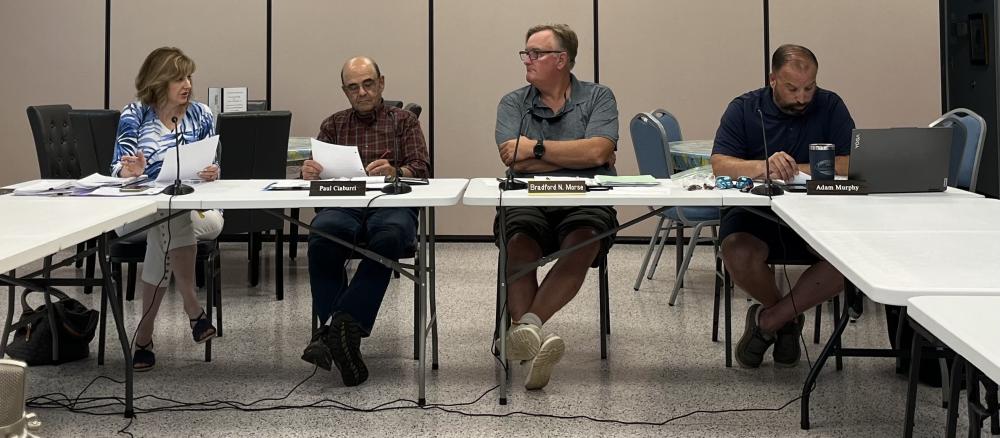Initial design for new Rochester fire station proposed
ROCHESTER – Town officials in Rochester are going to “take a step back” from a $30 million plan to build a fire station, fire sub-station and renovate the town’s police station following the results of a feasibility study that began in 2023.
“We had to evaluate and come up with a project,” said Select Board member Adam Murphy “We didn't have a project. We had several projects.”
The original study that looked into the feasibility of constructing new buildings for Rochester’s first responders, was conducted by Cambridge-based architect Ted Galante and was overseen by the town’s Public Safety Facility Feasibility Study Committee.
The study proposed renovations to the existing police station on Dexter Road, and the construction of a new fire station and fire substation. It would have been the town’s most expensive public works project to date, said Study Committee and Select Board member Brad Morse in a Feb. 14, 2023 meeting.
On Monday, July 15, Yarmouth-based Catalyst Architecture Interiors presented a proposal for a new Rochester Fire Station that could be built at the site of the former Rochester Country Fair.
“[The 2023 feasibility study] is a larger scope project that had multiple projects under the umbrella,” said Catalyst Architecture President Tim Sawyer.
The proposal was approved by the Public Safety Building Committee and is set to be reviewed by Town Counsel now that it has been approved by the Rochester Select Board.
“The goal is to create a design, a vision and a budget that you can start to garner interest around,” said Sawyer at a meeting of the Rochester Select Board.
Catalyst Architecture Interiors is also working on the new Marion Harbormaster Building.
“The intent of [our] proposal is at the end of this, you will have a much clearer vision of what this facility will be, what it will look like and what it will cost,” said Sawyer. “With focus on trying to make sure it gets into a budget that the town is able to support.”
Murphy said the town is aiming to “drastically reduce” the $30 million cost that the feasibility study showed for the original plan.
The cost of Catalyst’s phase one proposal, which is about $28,000, can be paid for with “money left over from the feasibility study” according to Arnie Johnson, who chaired the Public Safety Feasibility Study Committee.
It is unclear how much the completed project would cost the town.
The town will have to find different ways to pay for future phases of the project, according to Interim Town Administrator Suzanne Szyndlar.
Murphy said that the phase one proposal is “looking at what is best for the town and also what the town could afford to do.”












